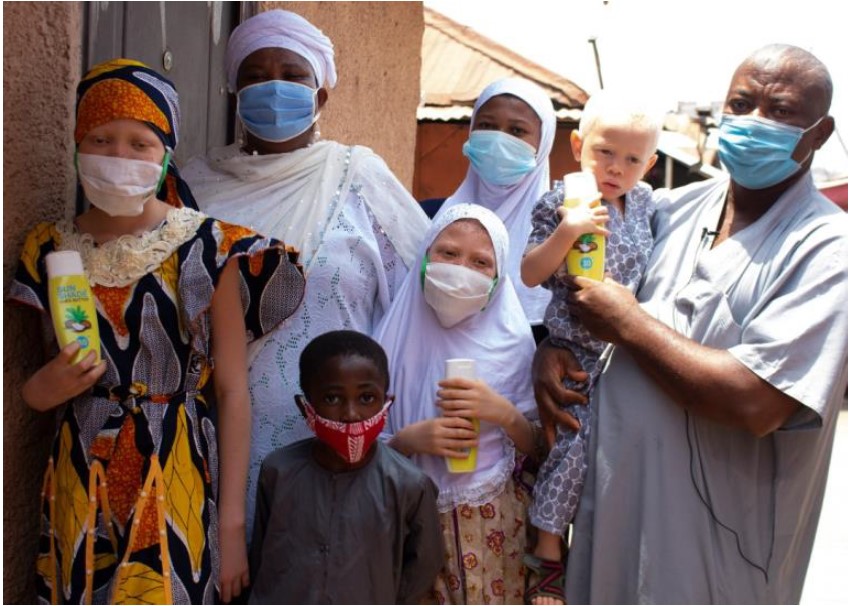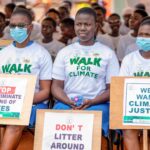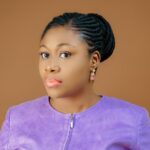By Kwame Andrews Daklo
Throughout my life as a person with albinism (PWA), my relationship with the sun has been marked by caution and restraint. From an early age, I became acutely aware of the sun’s impact on my skin. The dry season was not merely a time for play; it was challenging to navigate. Sunburn was a common occurrence, accompanied by the discomfort of blistered skin.
While my peers basked in the luxury of carefree outdoor play, I found solace in the shade, avoiding the blisteringly hot sun that threatened my well-being. Reflecting on my childhood, I recall my grandmother’s efforts to shield me from the sun. “Kwame, stay in the shade; the sun is too hot,” she would caution. Her warning messages stemmed from seeing me sunburned while working on the farm, and on several occasions, I got sunburnt on my face, neck, ears, and sometimes on my arms because they were the most exposed to the sun. I recall a harrowing experience when my entire head blistered because it was shaved to the skin without any hair.
Eventually, the only other way she knew to help me was to provide a wide-brimmed hat and long-sleeved clothing. Despite these measures, the sun’s relentless rays took their toll, leaving a lasting impact on my skin and shaping my understanding of the unique challenges people like me face every year.
My story and upbringing with my grandmother on the farm resonate with many PWAs raised in rural areas, where social challenges such as misunderstandings, behaviours, social exclusion, labelling, and negative beliefs are common because of a lack of public awareness about albinism. Consequently, PWAs face difficulties accessing education, depriving them of the necessary skills for formal employment. In rural areas, where individuals with albinism are agricultural workers, productivity is hindered by the sun’s harsh effects. Amid scorching heatwaves in West Africa, owing to rising temperatures, sunburn and consequently skin cancer have become prevalent with increased absorption of ultraviolet rays by the skin.
Between 2 and 3 million non-melanoma skin cancers and 132,000 melanoma skin cancers occur globally each year, according to the WHO. The incidence of skin cancer is particularly high in developed countries, where lower levels of melanin offer less protection against UV rays. In 2022, the US led the global market in sun protection skin care products, with revenues amounting to nearly two billion U.S. dollars. Across other developed countries, billions of dollars are invested in skin cancer prevention programmes and research each year.
In light of these challenges, what can we do? For one, conversations on climate change are a central topic in the high-level political arena in Africa, but what’s missing are discussions at all levels on the investments that should be made in skin cancer prevention programmes, treatment, research, and sunscreen production in the health and education sectors.
Secondly, people with albinism in Africa face unique struggles on multiple fronts. For this, we can advocate for sunscreen to be re-added to the WHO’s list of essential medicines. This recognition would ensure that sunscreen is seen as a vital product for preventing skin cancer among people with albinism.
We can spearhead local initiatives to produce sunscreen, fight for access to quality and affordable sunscreen, and advocate for quality healthcare services for early skin cancer screening, treatment, and prevention protocols. Schools should prioritise long-sleeved shirts, wide-brimmed hats and trousers for students with albinism. While not exhaustive, these are some of the most impactful and relatively cost-effective measures for governments and development partners.
Finally, by signing the petition to the WHO, we can push for global acknowledgment and support to make sunscreen accessible and affordable for PWAs. This action, combined with local initiatives and awareness campaigns, can significantly reduce the risk of skin cancer among people with albinism.
Kwame Andrews Daklo shares his experiences growing up with albinism and the significant impact the sun has on individuals like him. Due to the lack of melanin, people with albinism are more vulnerable to sunburn and skin cancer. Throughout his life, Kwame had to take numerous precautions, such as wearing long-sleeved clothing and hats, to protect himself from the sun.
He highlights the social and educational challenges faced by people with albinism, particularly in rural areas where there is a lack of public awareness. This contributes to social exclusion and limits their access to education and formal employment. Kwame calls for increased investment in skin cancer prevention programs, treatment, research, and the production of affordable sunscreen.
He also advocates for sunscreen to be recognized as an essential medicine by the WHO, which would make it more accessible to people with albinism. Additionally, he encourages supporting local initiatives, improving healthcare services for early skin cancer screening, and ensuring schools provide protective clothing for students with albinism. Finally, Kwame urges signing a petition to push for global acknowledgment and support for these measures.






